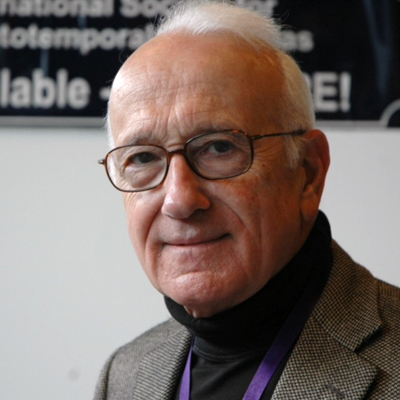Identifying the underlying causes of hereditary dementias
Dementia is a general term for the loss of memory and other mental abilities severe enough to interfere with one’s daily life. Caused by physical changes in the brain, there are many different types of dementias, with the most common being Alzheimer's disease. Dr. Bernardino Ghetti, Distinguished Professor of Pathology and Laboratory Medicine at Indiana University School of Medicine, is a leader in the field of hereditary dementias, which includes Alzheimer’s disease, Pick disease, frontotemporal dementia, and Gerstmann-Straeussler-Scheinker disease. As both a researcher and clinician, he spends his time studying the basic underpinnings of hereditary neurodegenerative diseases, diagnosing neurodegenerative diseases, and bridging the gap between basic research and clinical applications. Therefore, his bench-to-bedside approach, motivated by a deep concern for his patients and the “diseases that destroy the human spirit,” has a profound ability to help understand the genetic and molecular basis of some of the most prevalent diseases that affect the aging population.
For twenty-two years, Dr. Ghetti served as the director of the Indiana Alzheimer Disease Center (IADC), which is funded by the National Institute on Aging and helps to identify individuals with probable Alzheimer disease. He continues to play an active role at the IADC while devoting his energy to his lab and patients. By combining clinical neurological and psychiatric experience with cutting-edge neuropathologic methods, protein chemistry, and molecular genetics, Dr. Ghetti hopes to understand the ways in which genetics affects the onset of dementias. As the director of one of the best neuropathology laboratories in the country, Dr. Ghetti's expertise, extensive collaborations, and novel approach have continued to lead him and his team to important discoveries. Providing a fundamental step between the clinical and basic science work, an investment in Dr. Ghetti is an investment in the future of treating hereditary dementias and improving the healthspan of patients while relieving burdens upon their families and caretakers.
Current research includes:
- Dementia: Dr. Ghetti and his team study the brains of patients that have dementia to enhance clinical studies. With a particular interest in frontotemporal dementias, Dr. Ghetti helps to support accurate diagnoses for patients in addition to working towards a firm understanding in the causes and future treatments of diseases. His previous work was instrumental in identifying the Tau protein, an important protein for nerve cell functioning, as having a major role in neurodegenerative disease. Continued research on Tau and Tau gene (MAPT) mutations will help to determine which biomarkers can be used for early diagnoses and also help people involved in discovery for therapeutics.
- Prion Diseases: Prion proteins are important for cognitive function. A disruption in their structure or function leads to a variety of prion diseases that include Mad Cow disease in bovines as well as Creutzfeldt-Jacob disease, Fatal Familial Insomnia and Gerstmann-Straeussler-Scheinker disease. Dr. Ghetti studies hereditary prion diseases that can present as forms of chronic neurodegenerative diseases. By connecting prion proteins and hereditary onset of disease, he and his team are helping to illuminate the molecular underpinnings of these devastating illnesses.
- International Society for Frontal Dementia: Dr. Ghetti is the founder of the International Society for Frontal Dementia, a nonprofit organization that brings together scientists with an interest in the fundamental understanding and treatment of frontotemporal dementia.
Bio
Dr. Bernardino Ghetti was born and raised in Italy where he completed his clinical academic training. He had strong training in classic languages and literature in high school and then exposure to medicine in a strong medical school.
He describes his “idealized concept of medicine” as a combination of art and science. After entering medical school, he quickly gained a clearer vision of what medical practice and research were. Soon his interest in the brain and brain related function quickly became central to Dr. Ghetti’s studies and he began working for the department of psychiatry in a psychopharmacology research laboratory. There he learned about drug function and the ways in which psychotropic molecules reach different parts of the nervous system. This opportunity gave him the chance to get a feel for research, begin publishing, and led him to his current career path as a researcher and neuropathologist.
After completing his coursework, Dr. Ghetti started his residency in mental and nervous diseases, and in the tradition of Italian education, also started to learn about neuropathology, the study of how different diseases occur in the brain. After completing his residency, Dr. Ghetti was awarded a scholarship that allowed him to study at the Albert Einstein College of Medicine, Bronx, New York. There he learned more about dementia and began to connect his background in hereditary diseases with hereditary dementias. After completing six years of postgraduate work at Albert Einstein College of Medicine, Dr. Ghetti accepted a faculty position at Indiana School of Medicine where he has continued to study hereditary neurological disorders with a special concentration on hereditary dementias.
Aside from research, in his free time, Dr. Ghetti has a passion for classical music, he enjoys literature and poetry.


